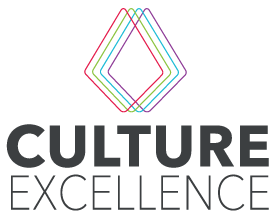Case Study: Hilton Food Group (HFG)
How to measure quality culture and keep it top of mind during a global pandemic!
HFG, founded in 1994, operates in 17 facilities with a 5000 people strong workforce.
HFG joined the Culture Excellence Program in 2019 and have committed to montoring the result of changes over time.
Tina Harris, Group Head of Quality, HFG, shared valuable insights on the quality culture at HFG. During her presentation, Tina spoke of HFG’s values and the importance of having strong company principles to underpin the company purpose: “Growth through Total Partnership”. The company’s driving force is to ensure that all retail partnerships prosper against the competition, and so understanding how staff perceived quality and safety sparked HFG’s involvement with the Culture Excellence programme. The assessment enabled HFG to not only identify their strengths and weaknesses but also how they compared to other businesses in the field. The results were used to drive improvements and support the company ambition to create an “audit ready culture” at every facility.
A strong start
The assessment results highlighted dimensions of strength and areas to focus on improvement. It also showed differences between groups, both across locations and on role level. As a result, HFG developed targeted action plans, which is one of the key benefits of the Culture Excellence programme: access to the multi-level online data platform.
Campaign launch and COVID-19: How HFG promoted the assessment
HFG launched their culture campaign to raise awareness and secure “buy-in” just as COVID-19 hit in March 2020. Although this was a stumbling block initially, the company was quick to tackle the challenge head on, conducting online workshops and utilising a company wide HFG app for campaign promotion. Posters (translated in many languages,) and designated culture champions served to reiterate HFG’s commitment. Equally, involving various other departments like marketing, a new logo, representing HFG’s dedication to quality and food safety (featuring on all internal documentation) was created and served as a reminder to all staff to “Step up to quality”.
How to overcome stumbling blocks
Tina emphasised that clear communication was absolutely key for success especially at the start of the project. Getting the message “right” ultimately dictates how the project is promoted and engaged with from the beginning.
Operating virtually, although complex to start with, has now become the norm for many organisations and so HFG found that really having structure for meetings is vital. The distribution of the first assessment also taught HFG a valuable lesson, most notably that timing is crucial. It had taken 2-3 months for an incremental assessment roll out during 2019 and, in hindsight, a 2-3 week company-wide window would be preferable as momentum can quickly wane. Tina noted that the aim is to find a way of making the best and biggest impact and so planning and structure are essential.
Being mindful of cultural differences is also important. HFG realised very quickly that certain interventions being pushed into sites were not going to work and so coordinating and supporting efforts with sites instead was necessary. This is where getting early feedback is so important, as you can adjust and change the initiatives. HFG are really clear that “different things work in different sites” and clarity and adaptability are key during the planning stages.
Any culture campaign needs a central point of contact for coordination, support and drive. Teamwork and functioning as a ‘group’ ensure that all campaigns get up and running but with a clear and common agenda for success.
Promoting Quality – lessons from HFG
There are many different and unique ways to promote quality and safety culture. Remember, it does not have to be a dry topic, but can be used to build teamwork and cohesion, increase coordination and connect the employees with the vision and values of the company.
Here are some of the innovative, effective and practical ideas that Tina shared:
Hosting ‘Celebrate Quality Day’ held over two days to ensure all-shift involvement with ‘Quality Products’ as gifts and prizes.
Holding monthly quality focus groups.
Doing product tastings with manufacturing line personnel.
Conducting supervisor expertise training and creating ‘Quality Heroes’.
Using quality culture notice boards.
Creating the ‘HFG Champions League’ to track improvements and drive site change.
Establishing a ‘Training Academy’ using simple content to get the message across to operatives in factories.
Using the ‘Cookie Challenge’ to bring people out of the factory to create a cookie from scratch. This is an interactive and innovative way of learning using cookie development to reiterate aspects of quality food safety.
Reference: Campden BRI (2020), Culture Excellence 6th Annual Seminar



